June 12: How Nigeria’s military president Ibrahim Babangida annulled MKO Abiola’s presidential election in 1993
- Late Chief MKO Abiola of the Social Democratic Party (SDP) was elected president on June 12 through a popular vote in 1993
- His election was declared the fairest in the history of Nigeria politics but was annulled by former military president, Ibrahim Badamosi Babangida
- In 1994 he declared himself president but was declared wanted by General Sani Abacha
- He died on July 7, 1998 in a most questionable manner
Kashimawo was his name, meaning “Let us wait and see,” as no one was quite sure he would survive till adulthood. Being his father's 23rd child, to the surprise of many, he was the first to survive infancy and actually ushered in other children into the family. It was not until he was 15 years old that he was properly named Moshood, as his parents then knew that he had come to stay and they saw the need for another name, Moshood Abiola; the name which was to give significance to the date June 12.
By the young age of nine, Moshood showed entrepreneurial talents starting a firewood business with which he supported his old father and siblings. He also founded a band at age 15 first performing in exchange for food, before proceeding to the point where he started demanding payments for performances with which he financed his secondary education at the Baptist Boys High School Abeokuta, where he excelled. He was the editor of the school magazine The Trumpeter, Olusegun Obasanjo was deputy editor.
By the young age of 19, he showed interest in politics, joining the National Council of Nigeria and the Cameroons (NCNC) since he considered it to be more pan-Nigerian when compared with the Obafemi Awolowo-led Action Group. Still at the same age, he started his career as a bank clerk with Barclays Bank in Ibadan, Southwest Nigeria, later joining the Western region finance corporation as an executive accounts officer, before leaving for Glasgow, Scotland, to pursue his higher education.
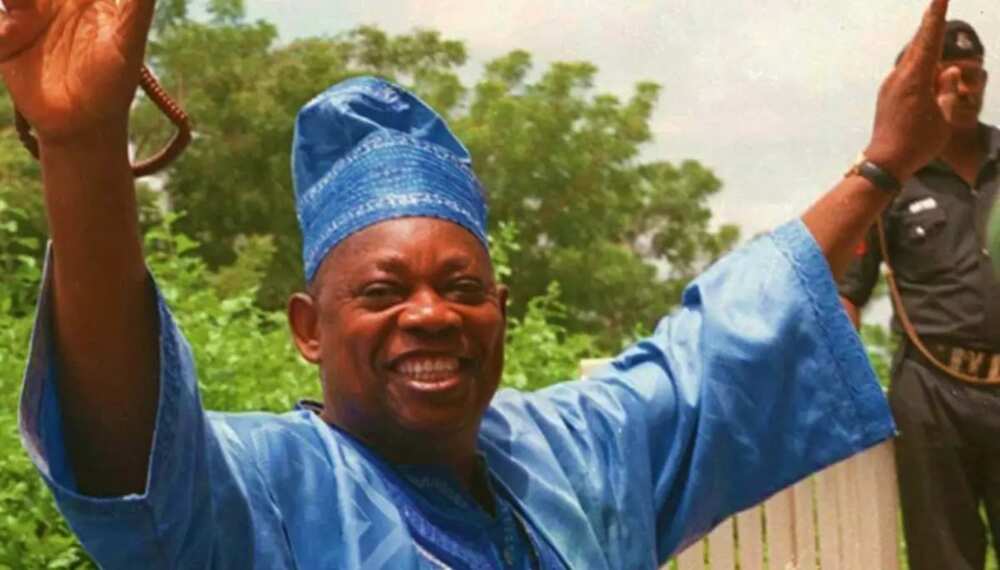
With his excellent Intelligence Quotient, and a brain which so many would today described as ‘hot,’ he received a first class degree in accountancy from Glasgow University and he also gained a distinction from the Institute of Chartered Accountants of Scotland. When he returned to Nigeria, he went to work as a senior accountant at the University of Lagos Teaching Hospital, then went on to Pfizer, before joining the ITT corporation, where he later rose to the position of vice-president, Africa and Middle-East, of the entire corporation, which was headquartered in the United States.
READ ALSO: June 12: 7 facts that perfectly sum up MKO Abiola's life
He thus made most of his money in the United States where he also spent a lot of his time whilst retaining the post of chairman of the corporation's Nigeria subsidiary. As one who had his heart set towards making the country better, Abiola invested heavily in Nigeria and West Africa; setting up Abiola farms, Abiola bookshops, Radio Communications Nigeria, Wonder Bakeries, Concord Press, Concord Airlines, Summit Oil International Ltd, Africa Ocean Lines, Habib Bank, Decca W.A. Ltd, and Abiola football club.
In addition to these, he also managed to perform his duties as chairman of the G15 business council, president of the Nigerian Stock Exchange, patron of the Kwame Nkrumah Foundation, patron of the WEB Du Bois foundation, trustee of the Martin Luther King Foundation, and director of the International Press Institute.
As permitted by his religion, Moshood Abiola married many wives, notable among whom are Simibiat Atinuke Shoaga in 1960, Kudirat Olayinka Adeyemi in 1973, Adebisi Olawunmi Oshin in 1974, Doyinsola (Doyin) Abiola Aboaba in 1981, Modupe Onitiri-Abiola and Remi Abiola. As expected, he did father a lot of children through these women.
Moshood Abiola spent a large chunk of his wealth in catering for the needs of society, and this was what brought him to national and international limelight. His philanthropic activities were done to groups and individuals alike, irrespective of ethnic, religious or social affiliations.
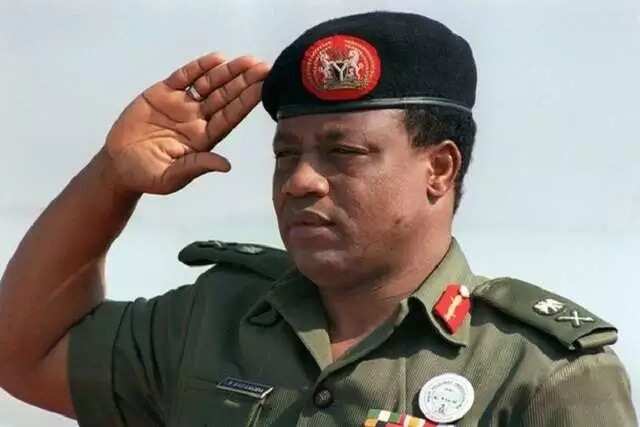
The Congressional Black Caucus of the United States of America had this to say about him: “Because of this man, there is both cause for hope and certainty that the agony and protests of those who suffer injustice shall give way to peace and human dignity. The children of the world shall know the great work of this extraordinary leader and his fervent mission to right wrongs, to do justice, and to serve mankind.
“The enemies which imperil the future of generations to come: poverty, ignorance, disease, hunger, and racism have each seen effects of the valiant work of Chief Abiola. Through him and others like him, never again will freedom rest in the domain of the few. We, the members of the congressional black caucus salute him this day as a hero in the global pursuit to preserve the history and the legacy of the African diaspora.”
His generosity, Legit.ng learnt, was so immense and cut across different communities and groups in Nigeria such that in his lifetime, he was conferred with 197 traditional titles by 68 different communities and was grand patron to 149 societies or associations in Nigeria. The financial activities rendered to these communities resulted in the construction of no less than 63 secondary schools, 121 mosques and churches, 41 libraries, 21 water projects in 24 states of Nigeria. Quite generous!
He no doubt understood that the giving hand is more blessed than the receiving hand. Beyond this reach outs which cut across the ethnic and religious divides in Nigeria, he also made his mark on the international scene, being a dedicated supporter of the Southern African liberation movements from the 1970s and even sponsoring the campaign to win reparations for slavery and colonialism in Africa and the diaspora. Chief Abiola, personally rallied every African head of state, and every head of state in the black diaspora to ensure that Africans speak with one voice on the issues.
Having already been involved in politics, he joined the ruling National Party of Nigeria (NPN) in 1980 and was elected the state chairman of his party. Re-election was done in 1983 and everything looked promising since the re-elected president was from Abiola's party and based on the true transition to power in 1979; Abiola was eligible to go for the post of presidential candidate after the tenure of the re-elected president. However, his hope to become the president was shortly dashed away for the first time in 1983 when a military coup d'état swept away the re-elected president of his party and ended civilian rule in the country.
After a decade of military rule, General Ibrahim Babangida came under pressure to return democratic rule to Nigeria. After an aborted initial primary, Abiola stood for the presidential nomination of the Social Democratic Party (SDP) and beat Ambassador Baba Gana Kingibe and Alhaji Atiku Abubakar to secure the presidential nomination of the SDP ahead of the 12 June 1993 presidential elections.
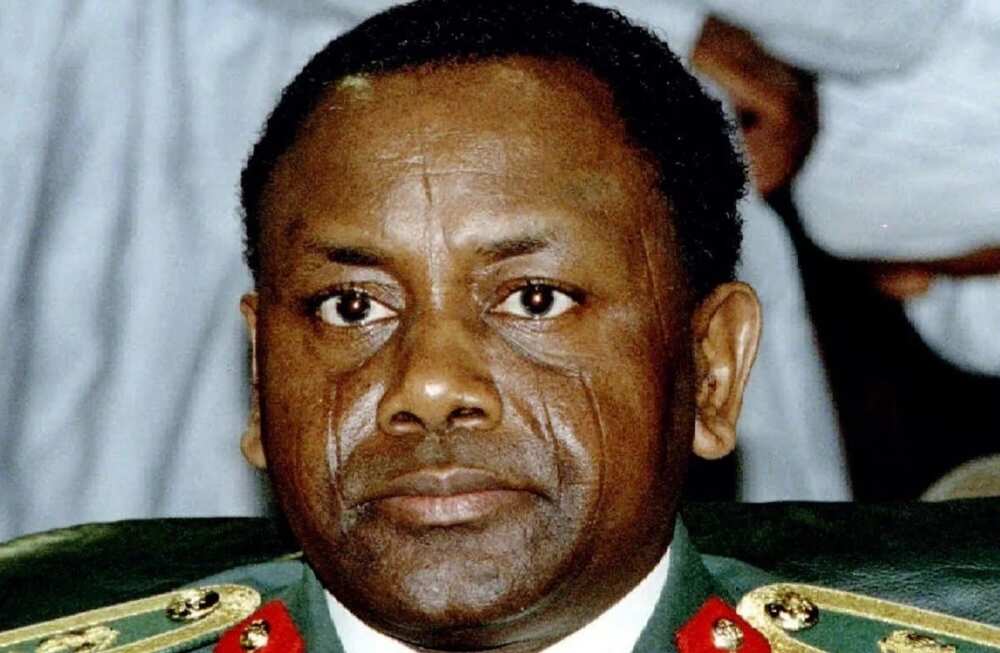
With his precedents and records, one could easily understand how when he ran for the presidency in 1993, he was widely regarded as the winner, having established a reputation as a man of the people, a reputation which cut across all regions. Alongside his running mate, Baba Gana Kingibe, whom he had earlier defeated at the primaries, he overwhelmingly defeated his rival, Bashir Tofa of the National Republican Convention.
Till date, the 12 June 1993 presidential election has been described as the only Nigerian election to have been declared free and fair both by national and international observers, with Abiola even winning in his Northern opponent's home state, the Federal Capital Territory, Abuja, the military polling stations, and over two-thirds of Nigerian states. Considering that northerners had before then dominated the political landscape since independence, made it even more historic since he was a Southern Muslim.
However, despite the general attestations to the fact that the election was free and fair, General Ibrahim Babangida, former military president, went ahead to annul the elections without declaring any conclusive results, as he claimed that the election was rid with corrupt and unfair practices. All of these led to a political crisis, which culminated in General Sani Abacha seizing power later that year.
Notwithstanding all the brouhaha, in 1994 Moshood Abiola went ahead to declare himself the lawful president of Nigeria in the Epetedo area of Lagos Island, an area mainly populated by (Yoruba) Lagos indigenes. He had recently returned from a trip to win the support of the international community for his mandate. After declaring himself president he was declared wanted and was accused of treason and arrested on the orders of military President General Sani Abacha, who sent 200 police vehicles to bring him into custody. MKO Abiola has been referred to as Nigeria's greatest statesman. His second wife Alhaja Kudirat Abiola was assassinated in Lagos in 1996 after declaring public support for her husband.
Moshood Abiola was detained for four years, largely in solitary confinement with a Bible, Qur'an, and 14 guards as companions. During that time, Pope John Paul II, Archbishop Desmond Tutu and human rights activists from all over the world lobbied the Nigerian government for his release. Even President Mandela had visited Nigeria in 1994 and engaged General Abacha on the matter of the release of Abiola.
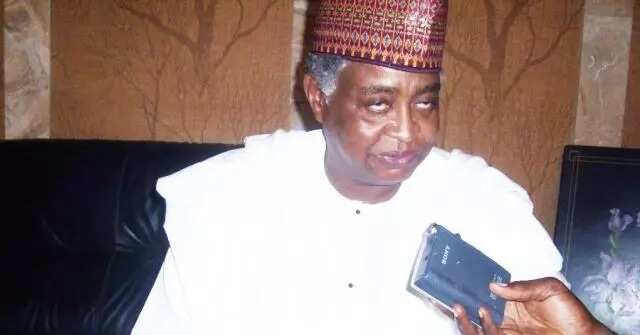
The sole condition attached to the release of Chief Abiola was that he renounce his mandate, something that he refused to do, although the military government offered to compensate him and refund his extensive election expenses. For this reason Chief Abiola became extremely troubled when Kofi Annan and Emeka Anyaoku reported to the world that he had agreed to renounce his mandate after they met with him to tell him that the world would not recognise a five-year-old election.
Abiola died a questionable death briefly after the death of General Abacha; on the very day that he was due to be released, on 7 July 1998. While the official autopsy stated that Abiola died of natural causes, Abacha's chief security officer, al-Mustapha, has alleged that he had video and audiotapes to prove that Moshood Abiola was in fact beaten to death. The final autopsy report, which was produced by a group of international coroners was never publicly released. Irrespective of that, it is clear that Chief Abiola received insufficient medical attention for his existing health conditions while in detention.
As recounted at the time in a BBC interview with special envoy Thomas R. Pickering, an American delegation, which included Susan Rice, visited Abiola and during their meeting with him, Abiola fell ill, with what was presumed to be a heart attack which caused his death. In the interview, Pickering insisted that it was largely heart failure and no traces of poisoning or other kinds of activity that might be suspected to have cause death or led to death.
Many Nigerians believe that Abiola had been murdered even though there are different theories as to who was responsible. Riots erupted in Lagos and in the south-west, Abiola’s home region. The daughter of the late business mogul and politician, Chief Moshood Kashimawo Abiola, popularly known as MKO, Hafsat Abiola-Costello, has said that her father sacrificed all for the nation at the expense of the suffering of his family. “He lost his life because he did not want to betray his people. We accept all the suffering we go through. Nigeria can’t be great if people did not suffer for the nation,” she said.
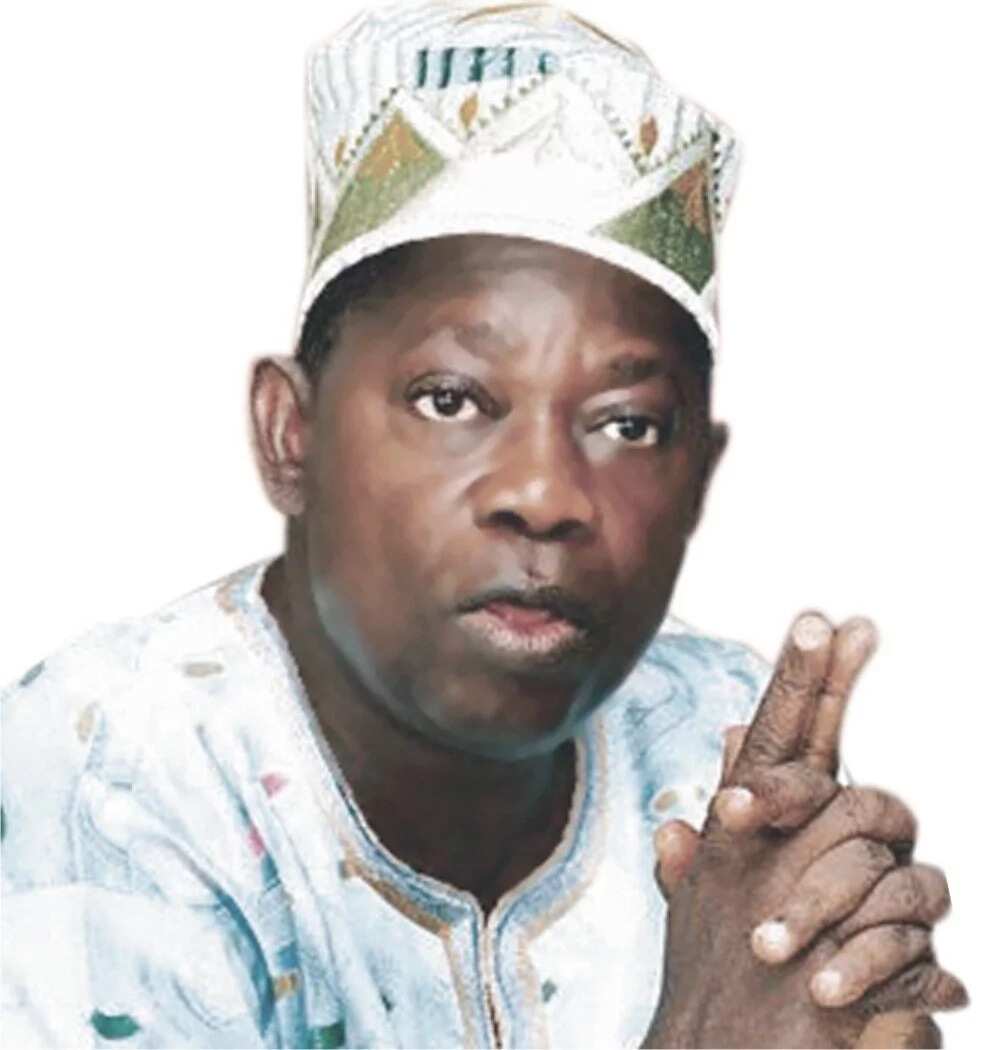
Since his death, there have been several post-humous awards given to his family members on his behalf. June 12 is still a public holiday in Lagos and Ogun states, and there are different events arranged in different states in remembrance of his notable contributions. MKO Abiola Stadium and Moshood Abiola Polytechnic were named in his honour. A statue, MKO Abiola Statue was also erected in his honour and he was awarded the third highest national honour, the Commander of the Federal Republic posthumously in 1998.
PAY ATTENTION: Install our latest app for Android, read best news on Nigeria’s #1 news app
While he was alive, Oloye Abiola was made the Aare Ona Kakanfo of Yorubaland which is the highest chieftaincy title available to commoners amongst the Yorubas, and has only been conferred by the tribe 14 times in its history. This made Abiola the ceremonial war viceroy of all of his tribe's people. According to the folklore recounted by the Yoruba elders, the Aare Ona Kakanfo is expected to die a warrior in the defense of his nation to prove himself in the eyes of both the divine and the mortal as having been worthy of his title. Perhaps, this was what played out in his life.
Meanwhile, President Muhammadu Buhari announced on Wednesday, June 6 that June 12 would be celebrated as the new Democracy Day in Nigeria.
The president also announced that the late Chief Moshood Abiola who was adjudged the winner of the cancelled June 12, 1993 election would be posthumously awarded the highest honour in the land, GCFR.
TODAY’S GIST: Democracy Day! What is There to Celebrate? - Nigerians Lament | on Legit.ng TV
Source: Legit.ng
